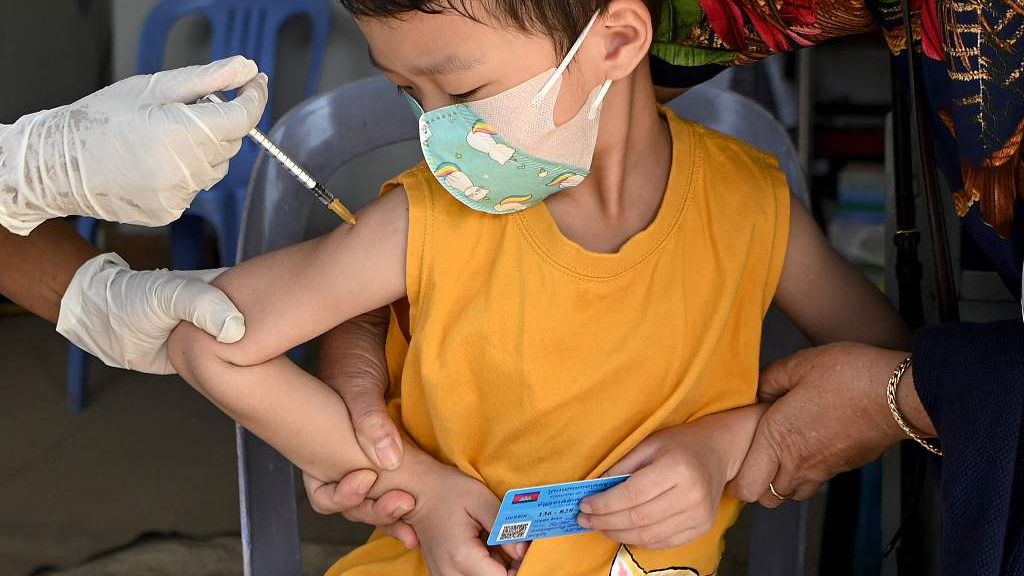
A boy receives a dose of the Sinovac COVID-19 coronavirus vaccine at a health center in Phnom Penh, Cambodia, February 23, 2022. /CFP
A boy receives a dose of the Sinovac COVID-19 coronavirus vaccine at a health center in Phnom Penh, Cambodia, February 23, 2022. /CFP
COVID-19 vaccines prevented nearly 20 million deaths in the first year after they were introduced, according to the first large modelling study on the topic released Friday.
The study, published in The Lancet Infectious Diseases, is based on data from more than 180 countries collected from December 8, 2020 to December 8, 2021.
It is the first attempt to estimate the number of deaths prevented directly and indirectly as a result of COVID-19 vaccinations.
It found that 19.8 million deaths were prevented out of a potential 31.4 million deaths that would have occurred if no vaccines were available, marking a 63 percent reduction.
The study used official figures - or estimates when official data was not available - for deaths from COVID-19, as well as total excess deaths from each country.
Excess mortality is the difference between the total number of people who died from all causes and the number of deaths expected based on past data.
These analyses were compared with a hypothetical alternative scenario in which no vaccine was administered.
The model accounted for variation in vaccination rates across countries, as well as differences in vaccine effectiveness based on the types of vaccines known to have been primarily used in each country.
The study found that high- and middle-income countries accounted for the largest number of deaths averted, 12.2 million out of 19.8 million, reflecting inequalities in access to vaccines worldwide.
Nearly 600,000 additional deaths could have been prevented if the World Health Organization's goal of vaccinating 40 percent of each country's population by the end of 2021 had been met, it concluded.
(With input from AFP)
Source(s): AFP

